What NOT to Flush Down the Toilet
Many people find flushing things down the toilet to be an easier option as compared to disposing of them the right way.
Flushing inappropriate items ranging from baby wipes, gum, diapers, paper towels, hair, rodents etc. can lead to clogs, back up, or even harm not only to your environment but also your water supply.
To keep your system running smoothly without any issues and ensure your pipes stay clog-free, keep the following out of your toilet.
Baby wipes
Although they are soft, gentle, and safe for baby use, the same cannot be said about flushing them down the toilet. They are not decomposable, as they do not break down in the water and should not be flushed. Doing so can clog up the plumbing system and damage pipes.
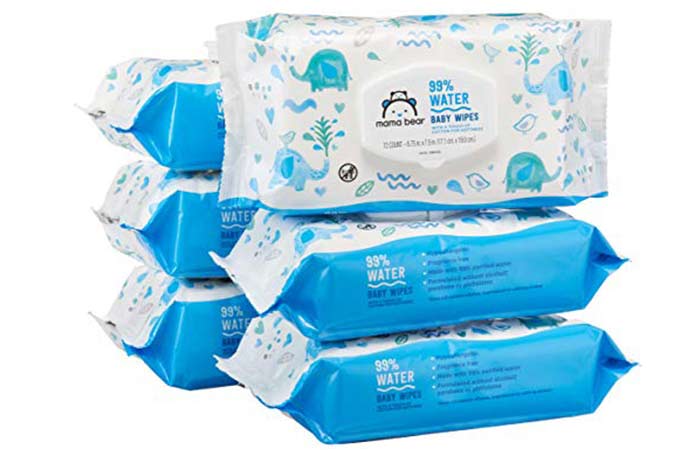
Menstrual Products
Menstrual products, including tampons and pads, take months to break down, unlike other bio-degradable materials. They are made to absorb liquids and increase in volume, which is unlike toilet paper. This accumulation causes clogs or harm to septic systems as wastewater –treatment cannot process them.
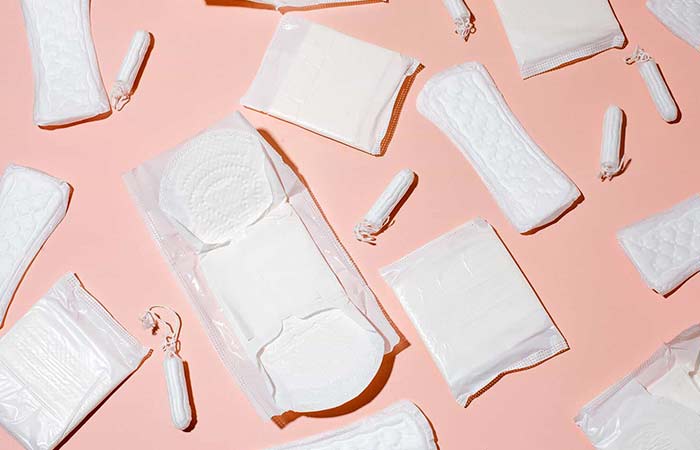
Contraceptive Sheath/Durex
Not only is the latex used non-biodegradable, but constant flushing may cause accumulation and end up in public waterways. This is damaging to the environment. It may also lead to clogs or a failing system if they get stuck in your pipes. Cover it in tissue and put it away with the trash.
Diapers
Diapers instantly block toilets, and if they do get past the toilet line, they can still get caught in the system’s turns and bends. Just like menstrual products are absorbent and too thick for plumbing. This may cause a backup in your house or damage to your plumbing.
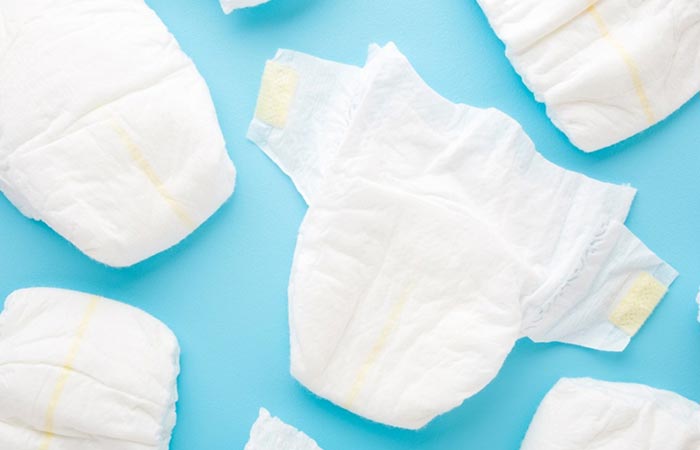
Dental Floss
Dental floss is either made up of nylon or Teflon and mixes with other products such as hair and paper towels in the system. They accumulate to form huge balls. This rapidly obstructs pipes. Avoid clogs by throwing them in the trash.
Paper towels
Though they may look and feel the same as toilet paper, towels and napkins are designed differently. They break down slowly as they are thicker and meant to be more absorbent. They may cause clogs if frequently flushed.
Cosmetic Wipes
After using your cosmetic wipes, do not flush them down the toilet, even those labeled safe to flush. These wipes do not break down as fast continuous flushing can accumulate and may clogs. They also contain harsh chemicals and bacteria that will affect the sewer system and the local waterways.
Expired and Unwanted Medication
Flushing down the toilet unwanted or expired medication, whether prescription, over the counter can be harmful. They contaminate the waste even more and can expose us to toxic chemicals.
Reports indicate that flushed medication ends up in our lakes and streams interfering with the average growth and reproduction of aquatic species.
Cigarette Butts
Cigarette butts are filled with dangerous chemicals that can leach into your water supply and contaminate it. Its filters and plastic-tipped buts can quickly get stuck in your septic tank.
Hair
Like dental floss, hair clogs up as it sticks to the insides of pipes and forms giant balls as it tangles with other materials. Avoid hair in your toilet, sinks, and shower drain use drain covers to protect them. Hair clogs up more drains as compared to anything else.
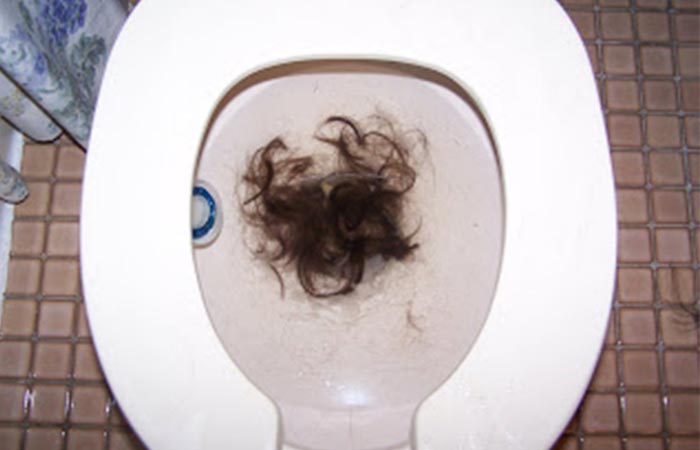
Gum
Gum cannot dissolve in water; it will stick itself to anything once flushed. It will trap other materials and form clogs in your system. The best way to dispose of it is your nearest trash can.
Cooking Grease and Oil
Once grease and oil or fat from cooking cool down, it turns into solid masses causing, blocked pipes or sewage problems. They then adhere to the walls of the pipes, and over time build-up can lead to it restricting water waste or utility pipes.
Rodents and other Small Animals
All animals, whether dead or alive, cannot fully disintegrate in water. Most pet owners tend to flush them. The Septic system is not designed for this; the animal may not be dead and wreak havoc in your pipes. You should either release it if alive or give it a proper disposal.
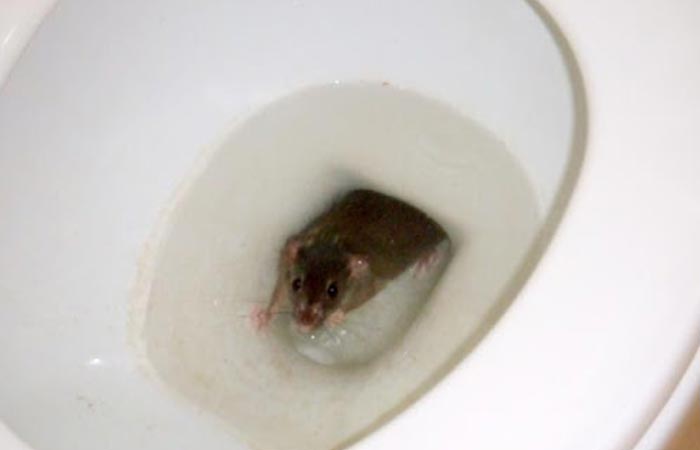
Food
You should not flush food as it does not decompose quickly. Food scraps can accumulate and cause clogs in your plumbing system. You should instead try to make use of leftovers and store excess food. If you need to dispose of, then use garbage disposals.
Bleach
It may be shocking, as you probably incorporate it in your cleaning. Bleach is quite harsh not only to your toilet but also to the septic tank. It is recommended that you use vinegar in place of bleach as it removes stains better and a safer option.
Contact lenses
More and more people are beginning to use contact lenses daily, and so billions of lenses are flushed. Discarding lenses improperly contributes to the creation of microplastics, a primary environmental concern.
Band-Aids
Band-aids are not made from bio-degradable plastic and should be flushed down the toilet. Dispose of it together with your trash.
Paint
Leftover house paint is considered hazardous waste material as it is highly flammable. It can also release toxic fumes into all parts of the house or even ignite and should be sent to a paint drop-off site. Paint can also coat your pipes and cause build up.
Cat Litter
This is one of the most common items that people flush, and although doing this may seem easy. Cat litter, in most cases, comprises clay that clumps when in contact with water. It cannot break down inside your septic lines and may sit there for long periods causing severe clogs.
Cotton
Cotton balls, cotton pads or Q-Tips are not safe to flush down the toilet. They do not break down the way toilet paper does. Cotton clump together in you pipes and cause problems.
Flushing the above items will not only ruin your drain system but also end up polluting the environment. When blockages occur in your system, sewage water starts to push back into your home. This is harmful, irritating, and costly to fix. Avoid this by only flushing materials that are “flushable.”